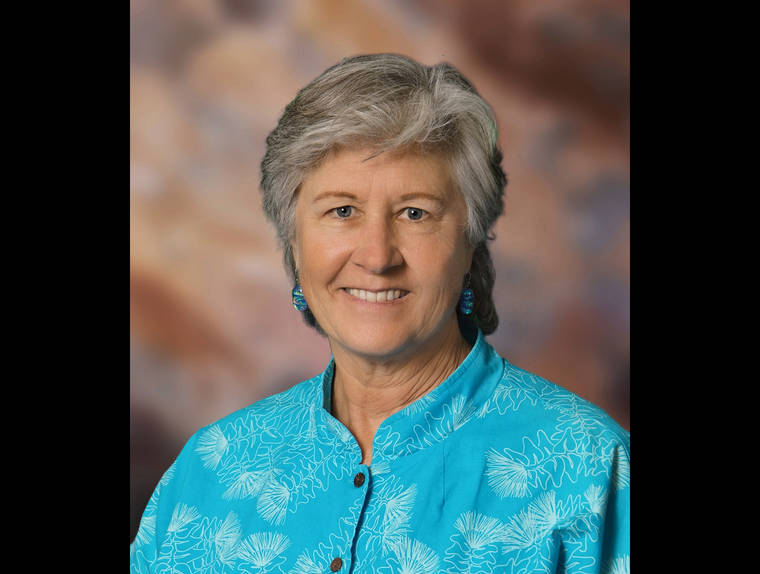
Those seeking to access the Our Care, Our Choice Act still face barriers.
Enacted in 2019, the aid-in-dying law allows Hawaii residents 18 years old or older who are diagnosed with a terminal illness and have a prognosis of six months or less to live to obtain a fatal prescription after two separate verbal requests to a physician, a written request with two witnesses and a mental health evaluation to ensure they are capable of making medical decisions for themselves.
But a lack of providers willing to participate and policies implemented by island health care systems are hindering access to aid-in-dying.
The East Hawaii Region of the Hawaii Health Systems Corp., which includes Hilo Medical Center, will not participate in OCOCA-related services on its premises, according to a new policy implemented this month.
That includes the duties required by providers under the law, prescribing or delivering aid-in-dying drugs; and prohibiting patients from self-administering the drug while a patient is in an East Hawaii Region facility.
Under the policy, however, providers can still diagnose or confirm a terminal illness, provide information about the law upon request, refer the patient to another health care provider who does participate, and support the patient and their families through the end-of-life process.
According to the policy, providers won’t be censured, disciplined, lose privileges or face any penalty for participating in OCOCA outside of an East Hawaii Region facility.
Approved by the HMC executive management team this month, the policy applies to all East Hawaii critical access hospitals, long-term care facilities, clinics and the Hilo hospital.
“We really support this, and we’re very glad the Legislature has allowed this service to be provided to our community and the people of Hawaii,” HMC Chief Medical Officer Kathleen Katt said. “We are unable to provide the service at our hospital, because we don’t have the resources that are needed to be able to fulfill all of the requirements.”
“We have providers already stretched thin doing clinic work, seeing their own patients,” hospital spokeswoman Elena Cabatu said. “It would require more care for this one patient that they’re already receiving.”
Katt said the health care system supports patients with terminal illnesses and their families through end of life by supporting patient health care services and providing pastoral and palliative care services.
Providers also could refer patients to other providers in the community who provide aid-in-dying.
A similar policy is in place in North Hawaii.
“Although we respect patients’ dignity and right to choose, QNHC does not participate in Our Care, Our Choice Act activities,” said Lynn Scully, spokeswoman for Queen’s North Hawaii Community Hospital in Waimea.
Kona Community Hospital, however, which is part of the HHSC West Hawaii Region, is in the final stages of adopting a position of “engaged neutrality,” spokeswoman Judy Donovan said.
“KCH supports our patients and their choices regarding the law,” she said. “We will provide appropriate educational resources that allow a patient to make informed end-of-life decisions. However, the hospital does not participate in OCOCA by way of allowing the administration of end-of-life medications on the KCH campus.”
According to Donovan, when a patient requests life-ending medication under the law, KCH providers will participate by offering appropriate resources or support and performing duties that are considered standard care for end-of-life patients.
“For years, KCH providers and the health care team have performed certain aspects of end-of-life processes, such as diagnosing or confirming a terminal disease; providing info to a patient in order to make informed decisions; determining a patient’s capacity, etc.,” she said. “These tasks, along with palliative care, are the standards of care in end-of-life patient care. The determination to provide neutral support of OCOCA was the next step in the evolving standards of care for end-of-life patients.”
Employees are not mandated to participate in OCOCA, but they are educated about KCH’s policy and will arrange for another staff member to provide the requested educational resources, Donovan said.
Donovan said the adoption of this policy is a component of KCH’s inaugural Circle of Life program.
Circle of Life is an employee-based support program that aims to create “meaningful experiences for employees and patients through the use of education and tools relating to traumatic events, end-of-life matters and bereavement.”
Sam Trad, state director for Compassion and Choices, part of a national organization that advocates for end-of-life rights, said finding a provider is the biggest challenge to accessing the law — especially in East Hawaii — and creates a “real barrier.”
“I get a lot of calls from East Hawaii patients who want this option, and currently the only solution is for them to see doctors on the other side of the island,” she said. “I know of at least two patients who died before they were able to complete the process because there’s no doctor in East Hawaii who will support patients. …”
Trad said she encourages health care systems and hospices to have a neutral policy regarding the law.
“If a doctor wants to support the patients in the option, they can,” she said. “We don’t expect any health care systems to be overly supportive of the option but also hope they don’t (oppose) it.”
Calls to Hawaii Care Choices, formerly Hospice of Hilo, were not returned.
"care" - Google News
February 15, 2021 at 05:05PM
https://ift.tt/3qlO9xa
Hospitals resist Our Care, Our Choice Act - West Hawaii Today
"care" - Google News
https://ift.tt/2N6arSB
Shoes Man Tutorial
Pos News Update
Meme Update
Korean Entertainment News
Japan News Update
Bagikan Berita Ini














0 Response to "Hospitals resist Our Care, Our Choice Act - West Hawaii Today"
Post a Comment